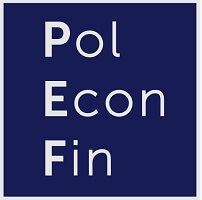Ruling with Ideology: Politicians’ Beliefs and Privatization
Paper
Ideology, the belief system about “how the society should be governed” that some group of people collectively sustains, is a critical factor that motivates economic decisions in democratic countries. However, it is not clear whether, in authoritarian regimes, ideology plays a similar role. In fact, many have claimed that ideology is irrelevant to decision-making in these countries.
This paper explores ideology’s role in decision-making under authoritarian regimes. Based on belief formation mechanisms, I construct a novel ideology measure for Chinese provincial party secretaries and governors. Focusing on China’s privatization wave around 2000, I document that the provincial governor’s ideology was an important factor shaping the privatization intensity within the province. Specifically, a governor with an above-median communist belief privatized 2.8% fewer state-owned enterprises each year than his below-median-belief colleague. However, the party secretary’s ideology only moderately affects privatization through its influence over subordinate-level governments’ decisions.
Politician appointments may be related to unobserved (by the econometrician) determinants of privatization. To the extent that my analysis omits these determinants, my estimates of ideology may be biased. I alleviate this concern with a rich set of falsification tests. I show that politicians with different communist beliefs do not differ systematically in other characteristics or are perceived differently by the central government. I also find no evidence that more communist politicians face different post-appointment targets or receive additional transfers from the central government. I conduct a battery of robustness tests to validate my results further.
Using an event study type of analysis, I show that compared to SOEs privatized under less communist-minded governors, SOEs privatized by pro-communism governors achieved lower productivity, profitability, and sales volumes after privatization. Further analysis shows that one plausible explanation is that pro-communism governors select SOEs with worse pre-sale performances to privatize. However, I do not find a similar impact of the party secretary’s ideology.
My paper contributes to three strands of literature. First, it enriches the literature on the economic consequences of ideology from two aspects. On the one hand, I show that ideology can be critical in motivating decisions in authoritarian regimes. On the other hand, I contribute to the surging literature investigating ideology’s influences on the corporate sector by documenting that it can shape the ownership structure. Second, it identifies politicians’ beliefs as a fundamental impetus for privatization. Furthermore, it offers a fresh perspective to explain the contradictory results about whether privatization increases efficiency. Third, it extends the broad literature on the political economy of finance by showing how politicians’ beliefs also affect corporate ownership, organisational structure, and firm performance.
Author: Thomas Lambert


